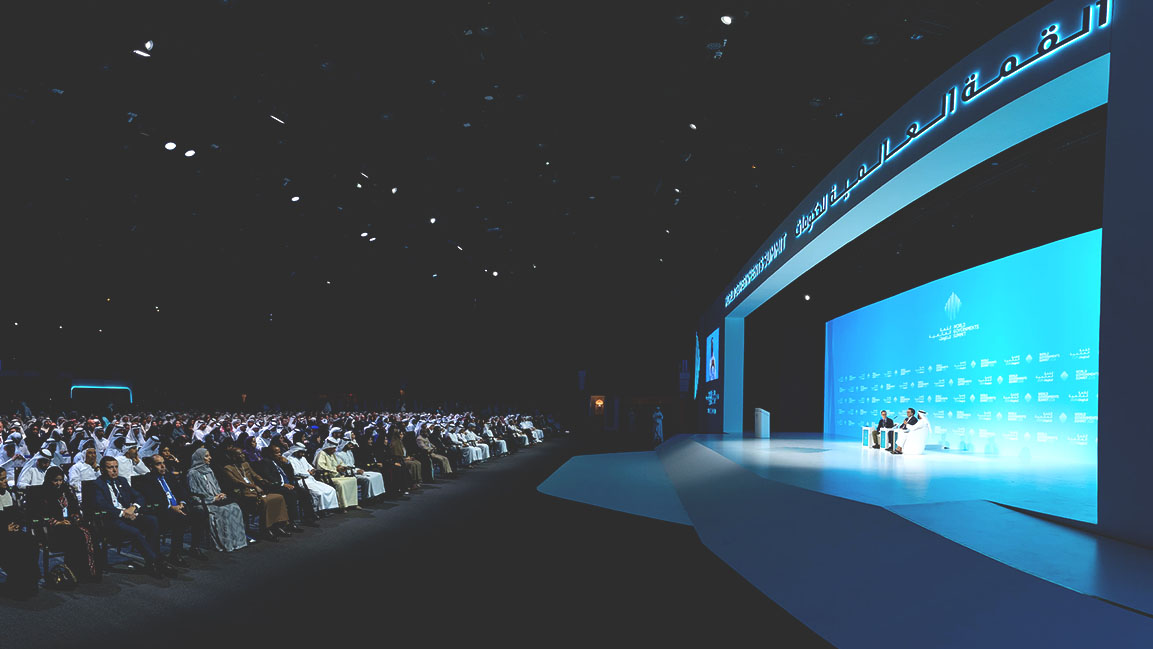- | 3:30 pm
IMF raises MENA growth forecast to 3.2% in 2025 as diversification gains momentum
Diversification, reforms, and AI readiness seen as key growth drivers

Economic growth in the Middle East and North Africa (MENA) region is set to accelerate to 3.2% this year, up from 2.1% in 2024, marking a 0.6% increase from the International Monetary Fund’s May outlook.
Speaking at a media briefing in Dubai on Tuesday, Jihad Azour, Director of the IMF’s Middle East and Central Asia Department, said the region has shown “remarkable resilience” amid persistent global uncertainty and geopolitical tensions.
The IMF projects growth to further strengthen to 3.7% in 2026, driven by higher oil output, robust non-oil activity across the GCC, and continued reform momentum.
“These upgrades reflect a range of factors: stronger growth stems primarily from higher than expected oil production following the unwinding of OPEC plus cuts. Growth in these economies is projected to reach 3% in 2025 and 3.4% in 2026 compared with 2.5% last year,” Azour said.
He added: “Growth in these economies is projected to reach 3% in 2025 and 3.4% in 2026 compared with 2.5% last year. But that is more than the story of oil.”
Azour also noted that diversification efforts across the GCC are gaining momentum, with non-oil sectors playing a larger role in driving growth and job creation.
Yet, Azour emphasized that this is more than a story of oil. He pointed to the GCC’s expanding non-oil sectors–particularly in services, tourism, real estate, and financial services–as central to sustaining growth and job creation.
The UAE stands out, with robust performance across both its oil and non-oil sectors. Abu Dhabi’s economy has benefited from rising oil production, while Dubai’s service and tourism industries continue to drive momentum.
RESILIENCE AMONG OIL IMPORTERS
For oil-importing economies, growth is projected to rise to 3.5% in 2025 and 4.1% in 2026, supported by lower oil prices, strong remittances, and a rebound in tourism and agriculture. The IMF credited ongoing macroeconomic stabilization and structural reforms with strengthening these economies’ resilience.
Inflation across much of the region is easing, aided by tight monetary policies and moderating food and energy prices. Financial conditions have also improved, with several countries regaining market access and sovereign spreads narrowing.
PREPARING FOR THE AI ERA
Azour also highlighted the sectors that will drive diversification in the coming five to 10 years stating that over the past few years, the non-oil sector has become the main driver of growth across the GCC, helping regional economies withstand a series of global shocks.
Strong investments in key areas, particularly tourism and services, have also supported this momentum, creating new sources of income and employment.
Looking ahead, he said the next phase of diversification will be powered by technology and innovation, with major investments flowing into AI, data centers, and what he described as the “Internet of the future.”
According to a recent IMF assessment, the UAE, Saudi Arabia, and Qatar are already among the most advanced globally in terms of AI readiness.
However, he emphasized that sustaining this progress will require more than capital alone– calling for greater investment in education, talent, and capacity building to ensure that the region’s digital transformation translates into long-term growth.
“AI is going to change the way we work. 40% of the labor force will be affected by AI,” Azour said.
While advanced economies are more prepared to absorb the shift, he warned that middle-income countries must act quickly to prepare their populations.
He emphasized the opportunity for AI to boost productivity and fuel stronger economic growth. “Gain in productivity will yield into improvement in growth prospects, and we need to get our share of that,” he added, calling for accelerated reforms and greater investment in infrastructure.
Access to affordable technology, particularly for youth, startups, and small and medium-sized enterprises, was also highlighted as essential. “This is a worldwide competition, and therefore, for the region to be ready, it has to regroup its forces,” he added.
With over two thirds of the region’s population under 30, Azour described the demographic as “tech-savvy” and well-positioned to upskill rapidly, if given the right tools. However, affordability and inclusion remain key concerns.
“Access is very important, and it’s important not only to increase growth, but also to improve inclusion, access to finance, access to talent, access to knowledge, access to infrastructure, especially technology infrastructure is very important to transform the region and strengthen inclusion, both for youth and women,” Azour said.
While the outlook is broadly positive, the IMF warned that global uncertainty, tighter financial conditions, and persistent inflation could weigh on activity. Economies with large financing needs or vulnerable banking systems remain particularly exposed.
Nevertheless, as reforms take hold and diversification deepens, the Fund expects MENA economies to remain on a steady growth path over the medium term, underpinned by technology adoption, rising productivity, and strengthened resilience.































